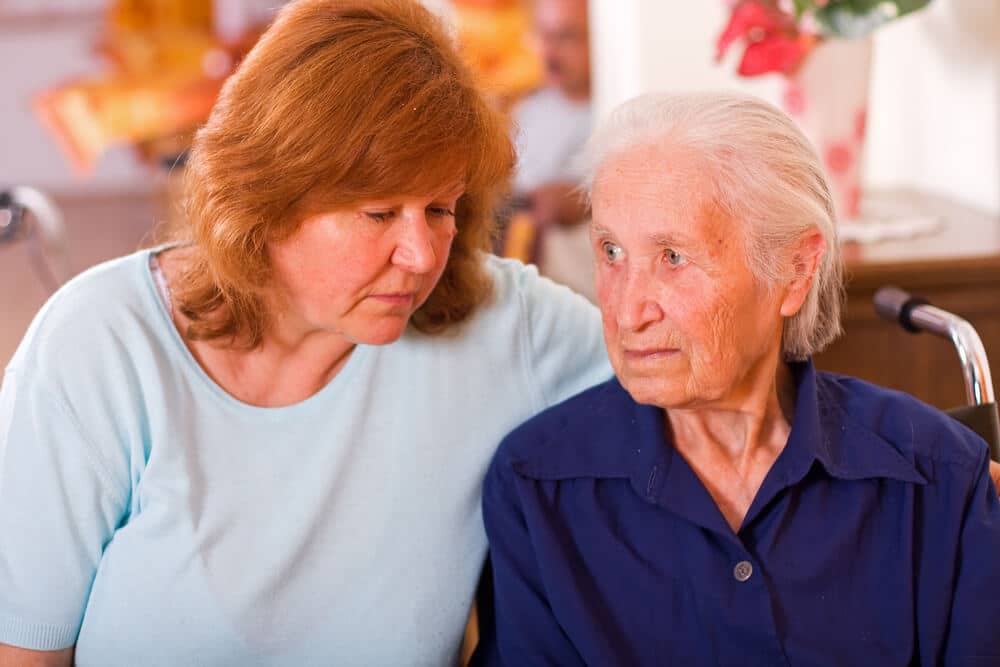We are living in a historical time during which every news story updates us on the prevalence and mortality rate of the Corona Virus (COVID-19), emotional response ranging from apathy among young spring breakers who believe themselves invincible, to older people whose anxiety has morphed into Obsessive Compulsive Disorder. Then there is the population most at risk of fatality; our oldest loved ones, many of whom have preexisting conditions known to increase COVID-19 lethality. Many seniors are sequestered from family, and afraid while others live with family, and are still afraid. They are experiencing intensified fear of death, being a burden to loved ones, and all the unknowns about the virus. What I am now hearing from clients who are adult children of seniors is that they are concerned about their loved ones’ anxiety, and don’t know what to do.
My suggestion is simple: Listen.
The challenge for us as adult children is managing our own anxiety about our parents dying. As anxiety often does, it causes avoidance that in this case deprives seniors of a way to process their fears or plans for the future should they contract the virus. By “plans for the future”, I am referring to preparedness for the unknown. When the elderly “have their affairs in order” it creates a sense of peace because they know loved ones will be taken care of, or will not be burdened by medical and funerary costs, or fight about division of assets. Our elderly parents would rather not be a posthumous cause of tension between family members because of an unclear will. However, it is our discomfort with these difficult conversation that turns us away from them, and deprives our parents the opportunity to process their fears.
When our elderly loved ones attempt to broach these topics, it is tempting for us to say things like “don’t worry” or “everything will be fine”. We use those deflective phrases to protect ourselves from our own sadness and anxiety about losing our parents, and deny reality to the extent we deprive ourselves an opportunity for an even deeper relationship. Although it is certainly not our intention, denying seniors the opportunity to process fear and anxiety is an invalidating rejection sure to result in feelings of isolation and increased anxiety. This is not to suggest needs are not being met on any level; it only suggests we are more likely to concern ourselves with our parents’ physical needs then their emotional needs. It is possible we forget our elderly parents have an inner world of fears and doubts that tend to be overlooked as physical needs are being accounted for, and medical appointments are kept, but if we don’t engage our loved ones in these difficult conversations, who else will?
For us to tolerate these conversations, we need to confront and accept our sadness and anxiety about loss, and remain as in the moment as we can. Having a discussion with an elderly parent about sickness and death is not going to increase the likelihood of it happening, but it will allow our loved ones to feel heard, understood, and calmed by the notion fo feeling prepared should the worst happen. Conversely, avoiding conversations about sickness and death will do nothing to prevent the likelihood of a worst case scenario, and instead invalidates our loved ones’ feelings by suggesting they are foolish or not important, and might as well be stowed and just dealt with.
I’ve encouraged clients to even initiate these discussions by “checking in” with their elderly loved ones. Questions such as “are you having any worries about the virus?” or “What are the things you are most concerned about should you get sick?” open the door to meaningful conversation that allow our elderly loved ones to not feel as if their worries are “crazy” or irrational. We all tend to feel more at peace when our feelings are understood, and when we feel heard. Although we will have some feelings of sadness and fear related to these conversations, we can always process them with spouses, siblings, or friends who are in similar positions. None of us deserves to live with a load of anxious thoughts on an endless spin cycle.
Even though we are social distancing, we can find ways to increase closeness to loved ones, even if it is a hard conversation that is strengthening our intimacy. The key for us is to process our own anxiety, and acknowledge that even in advanced age, our older parents have anxious thoughts and feelings greatly in need of validation and acceptance. Listening to them in a time of fear and uncertainty is among the many ways we can give back to our parents while teaching our children how we would like to be treated in our advanced age.





